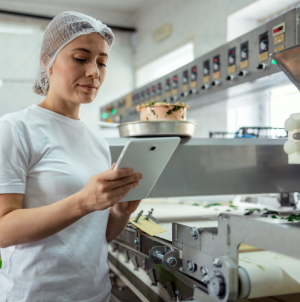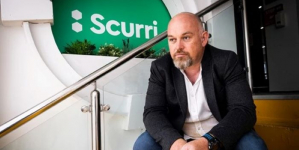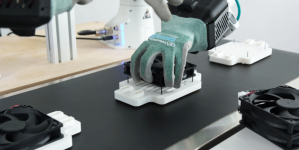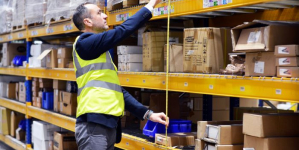-
Rite-Hite unveils new range of hydraulic kits to upgrade and extend dock leveller performance - 2 days ago
-
REWE and Cimcorp automate fresh supply chain for Berlin supermarkets and stores - 2 days ago
-
Q1 – A recovery period or time to fix, switch and scale? - 2 days ago
-
NULOGY’S SHOP FLOOR SOFTWARE TO POWER COMPLETE CO-PACKING’SOPERATIONS - February 13, 2026
-
Why lead generation depends upon good content - February 13, 2026
-
Wallapop and Albatross Sign Strategic Partnership to Bring Real-Time AI Discovery to the Future of Consumer-to-Consumer Commerce - February 12, 2026
-
Thorworld ramp helps Hubergroup to streamline its unloading operation - February 6, 2026
-
TRACKER INNOVATION FROM QUECLINK TO BOOST STOLEN VEHICLE RECOVERY PERFORMANCE - February 4, 2026
-
Flexi Narrow Aisle hits 50! - January 29, 2026
-
DERRY BROS ATTRACTS RECORD NUMBERS OF FREIGHT CUSTOMERS SEEKING CUSTOMS SUPPORT - January 29, 2026
Rollagranola scales up with MRPeasy
Food distributors and retailers rightly demand the highest standards of their suppliers, not just over ingredients and processes but also business systems. Major food groups can spend millions on systems – how can a small or start-up company aspire to a similar level of credibility with buyers?
For Hertfordshire based granola producer Rollagranola, part of the answer is a cloud-based Manufacturing ERP package from MRPeasy.
Inspired by the superior granolas he had encountered in the United States, Robin Longden founded Rollagranola in 2014, to produce premium granolas entirely from natural ingredients, with no refined sugars, and looking and feeling ‘home made’. The company now makes around 18 variants, including paleo and gluten-free, ‘to meet the needs of customers who want better standards and are prepared to pay a little bit more’.
Like many food start-ups, Rollagranola commenced by manufacturing at home and selling at markets. With turnover growing from an initial £60,000 per annum towards the current half a million, Longden took the decision after 18 months to become a proper commercial firm. This involved finding a 2,500 sq ft factory, but as a 30-year food industry veteran Longden was well aware that investment in systems would be at least as important as manufacturing investment if the company was to demonstrate its credentials as a serious operator to commercial buyers.
This meant, says Longden, that he needed a system that represented the business properly but wasn’t ridiculously expensive to get up and running. “Making granola isn’t the most complicated and sophisticated job – after all, you can make it at home. We needed a system that maintained simplicity and clarity, but gave us the ability to bring in new vendors, to store materials specifications, to work to consistent recipes and to provide full traceability – fundamental if you are dealing with any but the smallest retailers”.
Rollagranola works to SALSA (Safe And Local Supplier Approval) certification, which involves annual inspections as well as demonstrable adherence to good manufacturing practices and processes, analogous to those of major companies but “not so onerous that they pull a small company out of shape”. Firms have to show that they have end-to-end traceability – both backwards from a customer complaint and forward to trace where a suspect batch of ingredients has been used. “The mixture of intent, capability, and systems and processes is fundamental,” says Longden.
Rollagranola tested half a dozen MRP systems on ‘free trial’, and chose to install MRPeasy in June 2016. Longden found that the system was relatively easy to learn, and was attracted by the licensing model and pricing structure. “It really helps a growing business. You don’t have to take big bundles [of software] and you can add users one by one, so your costs are under control. But most fundamentally for us, the traceability works without any hassle”.
MRPeasy has been integrated straightforwardly with a Xero accountancy package and with the Shopify ecommerce system. Among the 400 or so live commercial customers on the system are buyers across Europe and as far afield as Australia. There are also sales through Ocado and the company’s own website. Field sales people use the system to input orders and add customers and “as a remote working, flexible system it works well.”
On the supply side there are around 20 suppliers at any one time, but since many of the ingredients – nuts, seeds, oils, spices – are quite specialised and obtained through intermediaries, there is quite a high churn rate. As the company grows the aim is to work with wholesalers that have a greater degree of control back up the supply chain. As it is, Rollagranola can find itself buying half of someone else’s half pallet, which makes flawless traceability even more critical.
Since installation, Longden has upgraded from a basic to a mid-range package, partly to be able to reflect different pricing strategies with different customers. There are capabilities that aren’t yet needed – “We are not a sophisticated operation with long supply chains, multiple bills of material or complex shipping processes” – but Longden says “the things that help us ensure robust and solid operation, control costs and stocks, are there, and MRPeasy gives us those in spades. As we grow, the system will become more important, and I can’t see why it wouldn’t be scaleable for the foreseeable future”.
Longden has found support to be quick and effective, He says: “MRPeasy is not so big that they use third parties who have had the system training but don’t understand how you are trying to use it. We could upscale to a different package but would pay an awful lot more for not a lot of real benefit – and MRPeasy continues to develop and innovate.”
As Rollagranola has experienced, MRPeasy provides an ideal solution for growing companies seeking productivity enhancement.
For further information visit www.mrpeasy.com

































